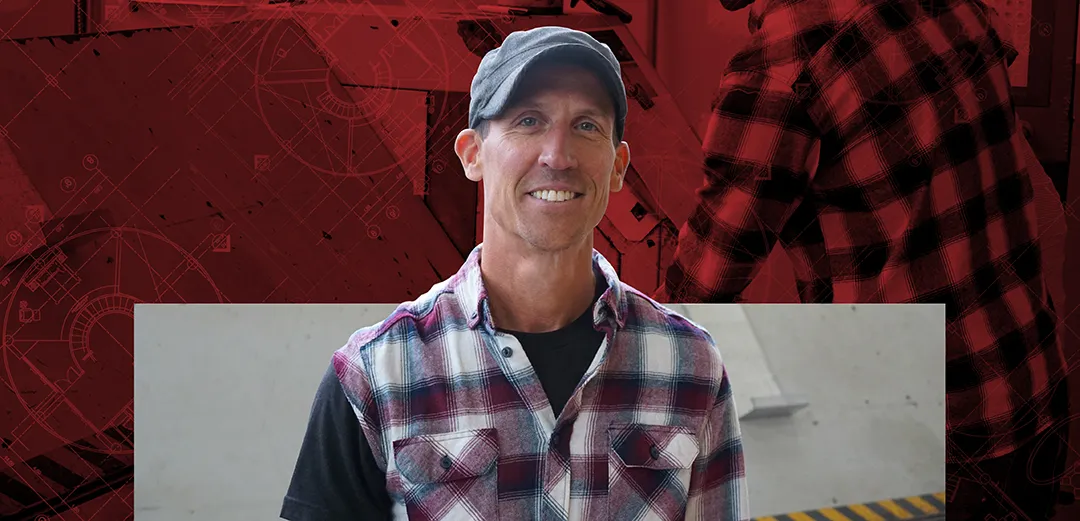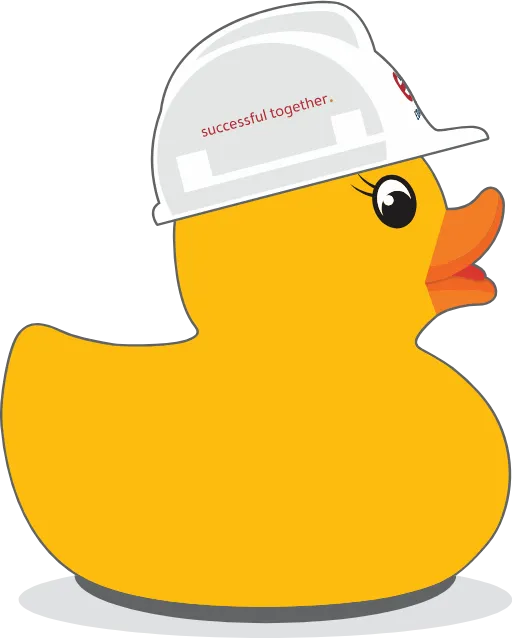#Duckumentary - Brian Torphy
11.3.2021
We believe that the diversity of our families’ previous experiences is what makes us successful together. Today, we speak with Coast Guard Veteran and EDA's Sheet Metal Fabrication Manager, Brian Torphy.

As the designated month for Military Families, this November we are celebrating the contributions from our EDA Family veterans.
How long have you worked in construction? How did you get your start?
I've been in the Carpenters Union since 2006… so about 15 years now. I started with a small construction background in the Coast Guard as an electrician. When I got out, that's what I wanted to do, but I missed the union test.
At that time, both my brother and my brother in-law were already in the Carpenters Union. They urged me to take the test, so I went that route. Fifteen years later, here I am.
When did you join the military and what motivated you to serve in the Coast Guard?
I signed up in 2001, right after 9/11. I was attending community college at the time, and I wasn’t sure where I wanted to go or what I wanted to do. After I saw everything that happened (on 9/11), I knew that I wanted to do something.
After going through all the steps, I had a lot of organizations interested in me, like the Marines and the Army. I wanted to help people after seeing everything that happened on 9/11, that's why I went with the Coast Guard. I ended up serving for four years.
How does EDA stand out among the other companies you’ve worked at?
EDA is the fourth company that I worked for in the construction industry, and I've been here for 13 years. Prior to working with EDA, most of the companies I worked for cared more about the bottom line, making your numbers, hitting your targets. Here at EDA, they care about their workers. You're not just another guy, you're not just a number. You're a human being, you're a person. That's the biggest thing for me.
How do you believe EDA can better support veterans?
That's a tough one. I think the biggest thing is simply hiring them. You know, when guys get out of the service, it's a tough transition. Like for me, I joined when I was 19. I came home when I was 23. When you get out of the service there's no real transition. A lot of people don't know what they want to do, and unfortunately, sometimes people come out with trauma. It can sometimes be hard to just find a job. There are programs like Helmets to Hardhats that help to give veterans career opportunities in the construction industry. I’d love to see EDA get involved with organizations like that.
Why do you think veterans are highly desirable candidates for employment?
All the training and discipline that a veteran receives in the service can make them some of the hardest workers you will find. They can be so dedicated with whatever they wind up doing.
What lessons have stayed with you from your service in the military?
The biggest thing that I learned was respect for other people, especially their time. One of the biggest things in the military is time, you never want to be late, you always want to be on time. I always respect other people's time. Somebody tells me that we have a meeting at 11:30, I'm not going to show up at 11:40 or 11:50 because I'm not disrespecting you and your time like that.
The biggest thing is simply respect. You learn a big chunk of respect when you're in service, especially when you’re a grunt and you have to respect your bosses… that stays with you. Respecting other people is one of the biggest things that I learned.

